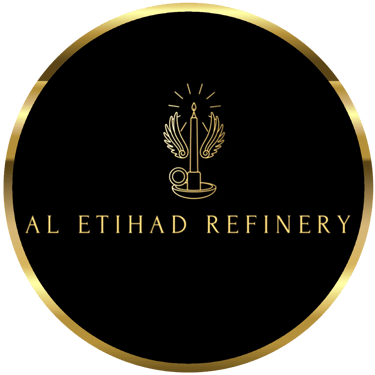What Gold Testing Really Reveals — And Why It Matters Before You Sell
Gold is one of the world’s most valuable natural resources — but its true worth lies in its purity. Whether you’re a miner, jewelry seller, private collector, or investor, testing your gold before selling it is a critical step that directly impacts your earnings, your safety, and your credibility.
10/24/20243 min read


Unfortunately, many sellers in local markets are unaware of how gold testing works or how much money they might be losing by skipping it. In this article, we’ll break down:
What gold testing (assaying) really reveals
How it’s done professionally
Why it matters before you sell
The difference between informal and certified testing
How to protect yourself from underpayment or scams
Let’s dive in.
What Is Gold Testing (Assaying)?
Gold testing, also known as assaying, is the process of determining the purity and composition of a gold sample. Since not all gold is 100% pure, testing tells you how much of it is actually gold versus other metals like copper, silver, or zinc.
Gold purity is usually measured in:
Karats (24K = 99.9% pure gold)
Percentage purity (e.g. 91.6% = 22K)
Fineness (e.g. 999 = 99.9% gold)
If you’re selling gold without knowing its purity, you’re likely leaving money on the table — or worse, being paid for less than its actual value.
How Certified Gold Testing Works
At reputable facilities like Al Ethihad Gold Refinery Uganda, gold testing is done using scientific, industry-standard methods that are accurate, fast, and legally recognized.
Methods of Testing Include:
XRF (X-Ray Fluorescence)
Non-destructive and instant
Reads the composition of metals in seconds
Ideal for jewelry, coins, and scrap gold
Gives results like: “Gold 91.6%, Copper 7.8%, Silver 0.6%”
Fire Assay (Cupellation)
The most accurate method (up to 99.99% precision)
Involves melting the gold sample and separating metals
Used for high-stakes trades and large-volume refining
Produces a detailed lab report
Touchstone / Acid Test (Used in informal markets)
Inexpensive, but often inaccurate
Risk of false results and damage to gold
At Al Ethihad, testing is conducted in a controlled lab environment with digital equipment, experienced technicians, and full client transparency.
The Cost of Skipping Testing
If you sell gold without having it tested:
You may be underpaid for high-purity gold if the buyer “guesses” it's lower karat.
You may be misled into thinking gold is worth more (in mixed items) when it’s actually less.
You have no proof if pricing is challenged later.
You lose leverage in negotiation.
For example, selling 24K gold as if it were 18K could result in a 30–35% financial loss — simply due to lack of testing.
Common Testing Mistakes in Informal Markets
In many African gold markets, sellers often rely on:
Word of mouth
Buyer’s guess or visual inspection
Simple acid tests performed with uncalibrated tools
These approaches leave room for:
Fraud
Weight manipulation
Underreported purity
No paper trail or evidence
Street dealers may deliberately undervalue your gold or use low-quality tools that distort purity readings. This is why certified testing is not just recommended — it’s essential.
Why Testing at a Certified Refinery Matters
1. It Builds Trust
At a place like Al Ethihad Gold Refinery Uganda, testing is part of a transparent process. The client can observe the testing or receive a full report with:
Purity grade
Weight
Method used
Timestamp and batch number
2. It Determines Your Payout
Payment is based on actual gold content, not guesswork. If your sample tests at 96.5% purity, you’re paid for that — not 75%, not 70%.
3. It Provides Legal Documentation
A proper assay report is a verifiable document you can use for:
Export clearance
Trade confirmation
Tax declaration
Resale or investment proof
Who Needs Gold Testing?
Small-scale miners: To avoid being exploited by informal middlemen
Jewelry sellers: To verify karat ratings before resale
Investors: To ensure bullion purity before purchase
Estate sellers: To evaluate family heirlooms or inherited gold
Exporters: To meet customs and documentation requirements
Basically — everyone dealing with gold needs proper testing if they want to protect value and avoid risk.
Why Sellers Choose Al Ethihad for Testing
At Al Ethihad Gold Refinery Uganda, gold testing is:
Free or included with refining service
Performed using certified equipment
Documented with lab-issued purity reports
Fully compliant with industry standards
Transparent — you see the results, not just a number
Clients walk away with confidence, knowing they received an accurate evaluation and fair pricing.
Final Word: Know What You Have Before You Sell
Gold testing isn’t just technical — it’s strategic. By confirming the purity and weight of your gold, you:
Avoid underpayment
Build credibility
Access higher-paying markets
Gain negotiating power
Protect your assets
In today’s gold market, knowledge is profit. At Al Ethihad, we don’t just test gold — we test honestly, precisely, and professionally.
Al Ethihad Gold Refinery Uganda
Legal Notice | Terms And Conditions | Cookie Policy
© 2025. All rights reserved
Terms And Conditions
Privacy Policy
Refund Policy

